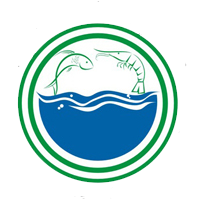Societies
NaCSA has organized more than 948 small farmer societies with membership of 20 to 75 registered farmers in each society. In this connection, NaCSA has registered 752 societies in nine coastal states of India comprising 18211 farmers and a total culture area of 16632 hectares. There are 612 societies in the state of Andhra Pradesh alone as this is being the key state which produces almost 70% of the farmed shrimp in India. There are about 18211 registered farmers involved in societies.
Public-Private partnership
NaCSA is working towards developing these societies as potential business model through public-private partnership where all the concerned stakeholders help the societies to sustain for the mutual benefit.
Traceable prawn from societies
- All society farms comply with government rules and regulations, they are registered with Coastal Aquaculture Authority of India.
- Each society has its own guidelines and Standard Operating Procedure (SOPs).
- The societies are audited every year by MPEDA for the implementation of guidelines and SOPs.
Eco-friendly Sustainable prawn production with no pollution
- The stocking density of prawn in societies ponds is less than 6 pcs per square meter which is far below the level when compared to other countries.
- Reduction of pollution by reduced use of chemicals, antibiotics, efficient use of feed and limited discharge of sediments and water exchange.
- Moving towards carbon neutral prawn: We are in the process of converting all the society farms from diesel based energy source to electricity (hydro electric) which will result in giving these societies an opportunity to trade carbon credit worth about US$ 1000 per society per crop.
Society produced prawns are safe: No use of Antibiotics in society farms
- Only antibiotic and disease free healthy prawn seeds obtained through contract hatchery system are stocked in society ponds.
- Societies are also closely monitored by NaCSA through society coordinators to make sure there is no use of antibiotics in society farms.
- Society prawn are natural. Because they are raised in low-density ponds, antibiotics like Chloramphenicol or Nitrofurans aren’t necessary to counter the ills of overcrowding.
Socially responsible societies
- Regular information sharing among farmers during weekly meetings.
- Cooperation in selecting/testing and buying seeds/feed etc.
- Each society has its own corpus fund for its long term sustainability with each member paying INR 1000 as initial membership fee and 0.05% of the income at the end of each crop.
- Here is increased communication and harmony between society farmers and local community.
All the society Farms comply with all applicable local and national laws
- Internal records are maintained in hatcheries, nurseries and farms on general management and key parameters.
- Purchasing and distribution records are maintained in nurseries and farms.
- Traceability will be extended one step backward from brood stock to one step forward until it reaches consumers through exporters.
Efficiently managed small farmer societies which provides similar advantage of integrated larger units
- Societies procure all their seed requirement form one hatchery, use feed from one company and our plan is to link the societies to exporters so that all the prawn from the particular society is marketed to one exporter. The benefits for the farmers is there will be better price realization as there is no agent or middle men involved, for the processors they can buy all the produce from the society as one unit which provides the advantage of larger integrated units where the harvests can be coordinated and better harvest and post harvest practices can be implemented in societies to improve the over all quality of the prawn and traceability can be maintained.
 NaCSA-MPEDA
NaCSA-MPEDA